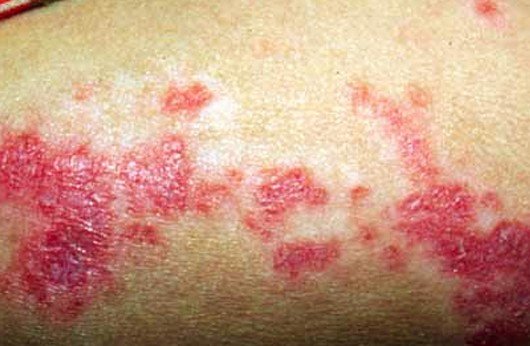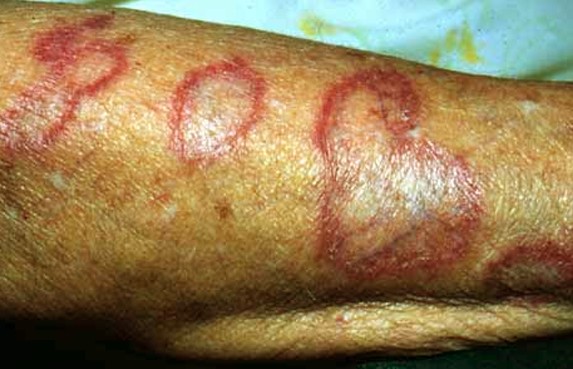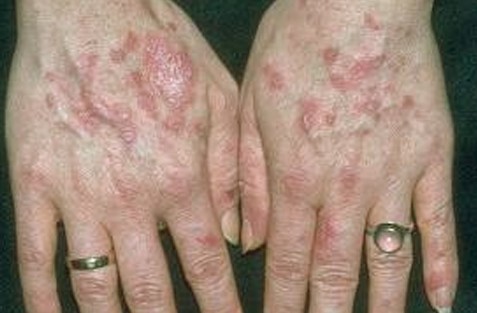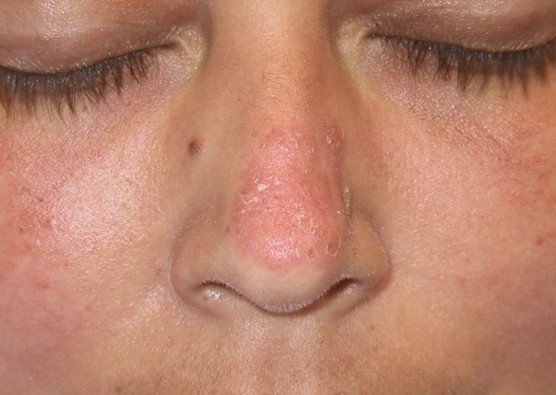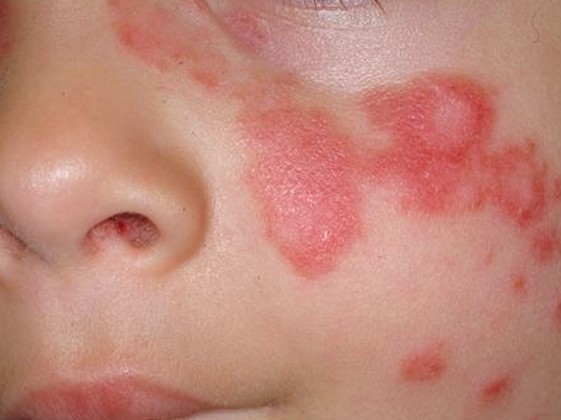Discoid Lupus
Last reviewed by Dr. Raj MD on January 12th, 2022.
What is Discoid Lupus?
This medical condition is a form of autoimmune skin disorder. It is also referred to as discoid lupus erythematosus. The word “discoid” is referring to the lesions disk shape. Lupus, in general, is a medical condition that causes your body’s immune system to attack itself. When you have discoid lupus it will usually affect the skin that surrounds your face but as the disease progresses, lesions are likely to develop on other parts of your body.
There is a form of lupus that many people confuse with discoid lupus and that is systemic discoid lupus, which is an advanced stage of discoid lupus. The advanced stage is when it has affected other parts of your body like your kidneys, lungs, nervous system, and heart. Approximately sixty percent of the patients who have any form of lupus are women over the age of twenty. Ten percent of the people who have discoid lupus will eventually have systemic lupus.
Discoid Lupus Symptoms
As stated, this type of lupus affects your skin so the symptoms are visible on your skin. You will most likely have lesions and discolored bumps on your neck, scalp, or face that are painless but usually do not itch. The symptoms that occur with this medical condition can be sporadic or constant but not everyone who has this type of lupus will have the same type of rash in the same places. At any time the symptoms could become severe.
Other symptoms can include:
- Rashes with a raised red scaling pattern that have a cone-like appearance. They normally appear on areas of your skin that are exposed to sunlight. The rash will appear on your arms, neck, scalp, and face but can even appear in your vagina or mouth. They can be crusty or scaly.
- May be ill for a short period of time which are referred to as flares, and followed periods of being well, referred to as remission
- Swollen joints
- Fatigue
- Your hair will start to fall out if it affects your scalp. It will fall out in patches and is called alopecia. It could be permanent. It can also cause your hair to lose color.
- Inflammation
- Permanent scars from the lesions
If nothing is done about the symptoms it could result in:
- Hypo-pigmentation – your skin becomes lighter
- Hyperpigmentation – your skin becomes darker
Causes of Discoid Lupus
Physicians at this time are not entirely sure what the underlying causes of discoid lupus nor understand the condition. As mentioned, it is thought to be an autoimmune disorder in which your immune system attacks your skin. Some of the risk factors that are thought to cause discoid lupus are exposure to cigarette smoke and sunlight, or having a family history of lupus.
Diagnosis
Before any treatment can be done your physician will need to make sure if the skin condition is discoid lupus or not. The physician will use a sedimentation rate test to make the diagnosis. This test will help to analyze if the inflammation that is seen on your skin is being caused by blood. The most help in verifying the cause of this inflammation is by a direct examination of your internal body fluids.
Your physician may also do a skin biopsy. If the skin biopsy states that you do have discoid lupus many times the physician will have you tested to see if you have systemic lupus erythematosus in order to make sure that there are no other organ systems that are affected. If you get a negative test result most physicians will have you test every six to twelve months. Once you have been properly diagnosed as to having discoid lupus the treatment will start immediately.
Treatment
There are no treatments that will totally cure lupus but treatment can help with the symptoms of discoid lupus. One thing that you should do if you have discoid lupus is to avoid any contact with reflected or direct sunlight as this is thought to be one of the risk factors for causing this medical condition. You should also make sure that you are avoiding fluorescent light also.
You should also try to reduce your exposure to tobacco smoke, even second hand smoke as this is another possible risk factor. Make sure that you keep any of the affected area covered and try to avoid any activity that is done outdoors. When you have a flare-up period you need to make sure that you are giving complete rest to your body. If you do have to go outside it is advisable to use sun screening agents, especially on the parts that you cannot cover up.
To help with the joint inflammation your physician may have you take non-steroidal inflammatory medications like aspirin, naproxen, sulindac, or ibuprofen. Your physician may put you on corticosteroids may be prescribed to help decrease your immune systems response to the inflammatory characteristics of discoid lupus. You may also be prescribed topical creams that you can apply to the rash areas to help keep them from spreading and to reduce the severity of them. These types of creams can also lead to healing quicker. Do not put any other medical ointment on the affected area without getting your physician’s approval first.
There are some people who have more flare-ups when they are exposed to extreme cold or intense heat so when the outside temperatures are extreme or intense it is best to stay indoors. If you have large lesions that are resistant to medication they may opt for surgery. They will use a precision laser device to promote quicker healing.
Although your skin problem may look severe you can live a healthy life with this problem provided you are treating your symptoms when they happen. One important thing to remember is that it is not merely a skin disease but it can have serious impacts on your body’s other organs so make sure you are not ignoring the problem. You should also make sure that you are seeing your physician every six to twelve months.
